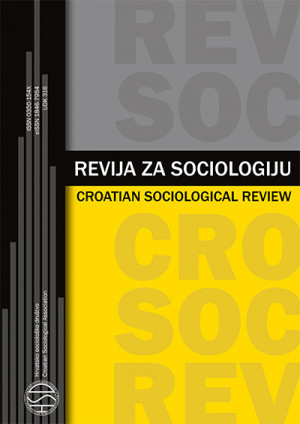Class in Yugoslav Socialism and in the Post-Yugoslav Societies: Toward a Bourdieuan Repositioning of the Issue (Part 1)
Class in Yugoslav Socialism and in the Post-Yugoslav Societies: Toward a Bourdieuan Repositioning of the Issue (Part 1)
Author(s): Mirko Petrić, Inga Tomić-KoludrovićSubject(s): Social Sciences
Published by: Hrvatsko sociološko društvo
Keywords: class; Yugoslav socialism; post-Yugoslav societies; Bourdieu’s class theory; historical sociology
Summary/Abstract: This article attempts to outline what its authors see as a potentially productive methodological approach for studying the connection between the notion of class in socialist Yugoslavia and class-related developments in its successor countries. The first part of the text consists of an extended elaboration of the ideological and social theoretical conceptions of class during the socialist period in Yugoslavia (1945–1990). This elaboration puts forth an interpretation that diagnoses an implicit and hitherto little noted interpretive move from Marx’s dual to Weber’s multidimensional model in the pre-empirical explanations of class in Yugoslav social theory. Following this, an account is given of the 1970s and 1980s class-centred empirical research in Yugoslavia, vacillating between Marxism and structural functionalism, and eventually aiming at an analytical reconciliation of the notions of class and stratum. In the second part of the article, a repositioning of the issue in terms of Bourdieu’s class theory is discussed as a potential contribution to explaining many of the blind spots of the socialist theorizing of class. This part of the article also contains a brief commentary of class-related research in post-Yugoslav societies, i.e. in the period of post-socialist transition. With references made to empirical studies carried out in two post-Yugoslav countries (Serbia and Croatia), the authors conclude that the concepts of methodologically cross-fertilized Bourdieuan class theory prove to be useful in this context as well, and can serve as a potent interpretive span between the socialist and post-socialist social spaces.
Journal: Revija za sociologiju
- Issue Year: 44/2014
- Issue No: 2
- Page Range: 107-137
- Page Count: 31
- Language: English

